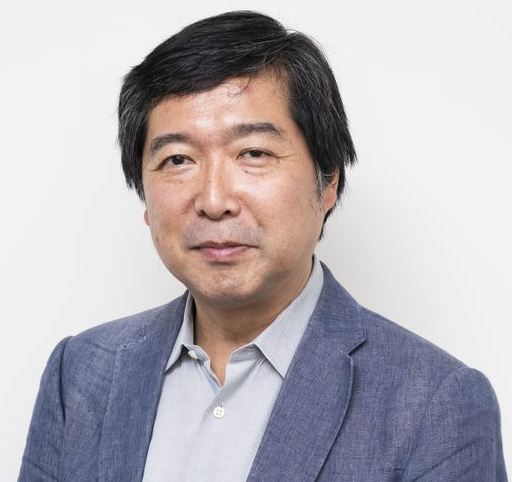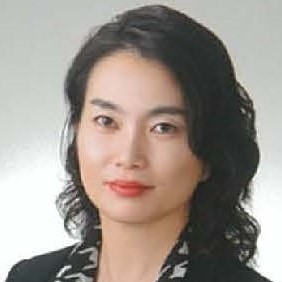Research and development community is increasingly required to engage in ensuring safety and security and social implications (ELSI: Ethical, Legal and Social Implications/Issues) of the technologies in their development of technologies.
The iGEM (International Genetically Engineered Machine), an international conference on synthetic biology, has long history of making efforts to address safety and security through students’ competition and to consider responsibility for the social impacts of projects (Human Practices), and is a useful example of a bottom-up approach by the research community.
With Ms. Dorothy Zhang (Vice President of Global Development, iGEM)’s input lecture of iGEM’s work in this field, the seminar will discuss (1) what kind of activities are required for safety and security and ELSI/RRI and how they can be embedded in the R&D process and (2) what is required to form an ecosystem (human resource development/education, funds, etc.) to enable smooth implementation of such activities.
By doing so, we aim to obtain implication on how such activities can be developed bottom-up and embedded in the upstream and downstream processes of research and development in the social implementation of synthetic biology.
Date: Wednesday, September 11, morning (9:30-12:00 JST)
Venue: Online by Zoom
*English Simultaneous Interpretation available
Previous registration required (by afternoon 10 Sep) to send you Zoom URL:
https://forms.gle/mkF6VSC2CyGpppEw5
If you cannot use the Google form, please email us to STIG@pp.u-tokyo.ac.jp for registration.
[Tentative Program]
9:30- Opening remarks: Hideaki Shiroyama, Graduate School of Public Policy, The Universiyt of Tokyo
———Makiko Matsuo: purpose of the seminar
9:40- Keynote speech: Dorothy Zhang, Vice President of Global Development, iGEM & Q&A
(Short break)
10:40- Panel discussion
(1) what kind of activity is needed to ensure safety, security and ELSI/RRI in research activities (what needs to be considered, what are the obstacles), and how to embed them in R&D process
(2) how to create an ecosystem for engineering biology – education and workforce, who sponsor/who should be involved, global collaboration etc)
12:00- Cloring remarks: Kohsuke Honda, International Center for Biotechnology, Osaka University
Moderator:
Makiko Matsuo, Project Associate Professor, School of Public Policy, The University of Tokyo
Speaker:
Dorothy Zhang Vice President of Global Development, iGEM (slide pdf)
Round Table Discussion Panelists: (tentative, TBD)
-Daisuke Kiga, Professor, Department of Electrical, Computer and Bioengineering, School of Science and Engineering, Waseda University (slide pdf)
-Nariyoshi Shinomiya, former Dean of the National Defense Medical College (slide pdf)
-Ryuma Shineha, Associate Professor, Center for Co-Creation of Socio-Technologies, Osaka University
-Rei Abe, 2023 iGEM Community Ambassador to Asia and Oceania (slide pdf)
-Sosei Saito, General Manager, Education Development Division, Leave a Nest Corporation (slide pdf)
-Daisuke Ishizuka, Assistant Director, Biochemical Industry Division, Commerce and Service Group, Ministry of Economy, Trade and Industry
Co-hosted by:
National Institute of Science and Technology Agency (JST) Innovative GX Technology Creation Project (GteX) “Development of Biomonozukuri DBTL Technology for Exploiting Diverse Microbial Functions” (FY2023-2027) (Research Representative: Kosuke Honda), The University of Tokyo Science for Science and Technology Innovation Policy (STIG) Education and Research Unit (STIG Co-Evolution Project SciREX Co-Evolution Realization Program Phase III ” Promotion of bio-manufacturing for enabling bioeconomy: Visualization of policy challenges and institutional design ” (Research Representative: Makiko Matsuo) )
Jointly sponsored by:
Bio-Digital Transformation (Bio DX) Industry-Academia Co-Creation Center” (Project Leader: Taku Yamamoto)
Speakers’ information:
 |
Dorothy Zhang (Vice President of Global Development, iGEM) Dorothy has over 15 years of experience in leading both international and domestic NGOs focused on advancing life sciences. Through these organizations, she has created pivotal platforms for the exchange of knowledge, promotion of innovation, and education in fields such as molecular biology, genomics, and synthetic biology. Her involvement with iGEM and other global initiatives has fueled her passion for connecting with diverse groups worldwide. Together, they collaboratively address the challenges of our time, exploring biotechnology’s potential to offer inclusive and innovative solutions. |
 |
木賀 大介(早稲田大学 理工学術院 電気・情報生命工学科 教授) 1999年 東京大学 大学院理学系研究科 生物化学専攻 博士課程単位取得退学。同年博士号取得。理化学研究所など各所でのポスドクの後,2004年東京大学助手,2005年東京工業大学助教授・准教授を経て,2016年より早稲田大学教授。 2006年、東工大と早稲田大で、合成生物学分野の学部生国際コンテスト ”iGEM” の東工大チーム監督。 |
 |
四ノ宮 成祥(国立感染症研究所 客員研究員) 2024年5月より現職。前防衛医科大学校長、医師、博士(医学)。専門は、微生物学・免疫学、分子腫瘍学、高圧・潜水医学、バイオセキュリティ。編著書は『生命科学とバイオセキュリティ デュアルユース・ジレンマとその対応』(東信堂 2013)、『Regulation of Signal Transduction in Human Cell Research』(Springer 2018)、『Hyperbaric Oxygenation Therapy』(Springer 2019)、『すぐに分かるCBRN事態対処 Q&A』(イカロス出版 2020)、『合成生物学は社会に何をもたらすか』(専修大学出版局 2022)など。 |
 |
標葉 隆馬(大阪大学 社会技術共創研究センター 准教授) 京都大学大学院生命科学研究科博士課程修了。博士(生命科学)。総合研究大学院大学・助教、成城大学文芸学部・准教授などを経て、2020年4月より現職。専門は科学社会学・科学技術社会論・科学技術政策論。特に複数の先端生命科学分野をフィールドとしながら、先端科学技術における倫理的・法的・社会的課題 (ELSI) の可視化、メディア分析、コミュニケーションデザイン、政策分析などを組み合わせながら、複数のプロジェクトをPIとして幅広く研究・実践中。主著に『責任ある科学技術ガバナンス概論』(ナカニシヤ出版 2020) ほか論文など多数。https://researchmap.jp/ryuma_shineha/ |
 |
阿部 レイ(2023 iGEM Community Ambassador to Asia and Oceania) 2023年3月早稲田大学先進理工学部生命医科学科卒業。早稲田大学在学時、学部1年から学部4年までPIの木賀大介先生のご指導のもと、iGEMの活動に参加。 2020年iGEM大会(オンライン)、2022年iGEM大会(フランス)にWaseda_Tokyoチームの一員として出場。 2023年1月より1年間iGEM Communityアンバサダーに就任。 学部卒業後、2023年4月より東京工業大学生命理工学系地球生命コース(一貫制博士)に進学し、現在在学中。 |
 |
齊藤 想聖(株式会社リバネス 教育開発事業部 部長) 2012年、慶應義塾大学大学院薬学研究科修士課程修了。2021年9月から現職。株式会社リバネスに入社後、入社一年目から墨田区町工場全件調査と大学の研究成果を社会実装する事業「TECH PLANTER」の立ち上げに関わる。現在は、中高生などの次世代研究者の発掘や育成「サイエンスキャッスル」や次世代のための研究所「ADvance Lab」などのプロジェクトを主幹する。 |
 |
石塚 大輔(経済産業省 商務・サービスグループ 生物化学産業課 課長補佐) 2022年5月15日より現職。2008年に経済産業省に入省後、省内の予算編成、電力業界の税制改正/会計、中小企業金融(政策金融)を担当。2015年から1年間米国Vanderbilt大で政策研究に従事した後、温暖化対策、競争政策を担当。 人事(人材育成)を経て、現職では、バイオものづくり(ホワイトバイオ分野)の政策支援を担当し、企業の社会実装を支援。 |
 |
本田 孝祐(大阪大学 生物工学国際交流センター 教授) 京都大学農学部卒業後、2003年、同大学大学院応用生命科学研究科博士後期課程修了。博士(農学)。05年、大阪大学大学院工学研究科助教。10年6月、同研究科准教授を経て19年11月から現職。この間の11月4月から3年間、JSTさきがけ研究員も務めた。 |
 |
城山 英明(東京大学 公共政策大学院 教授) 東京大学法学部卒、同助手、東京大学大学院法学政治学研究科講師、助教授を経て、東京大学大学院法学政治学研究科教授(公共政策大学院教授を兼務)。専門は、行政学、国際行政論、科学技術と公共政策。主要業績に、「国際行政の構造」、「中央省庁の政策形成過程」、「法の再構築Ⅲ科学技術の発展と法」、「国際援助行政」、「科学技術ガバナンス」、「政治空間の変容と政策革新①政策革新の理論」等がある。 |
 |
松尾 真紀子(東京大学 公共政策大学院・未来ビジョン研究センター 特任准教授) 2020年4月1日より現職。現在、科学技術イノベーション政策における「政策のための科学」教育・研究ユニット(STIG:Science, Technology, and Innovation Governanceプロジェクト)で、国際政治・公共政策学・リスク研究等多様な観点から科学技術と社会の交錯領域(食品安全、バイオエコノミー、国際保健等)におけるガバナンスやELSIにかかわる研究に従事。履歴・業績:https://researchmap.jp/makiko_matsuo |